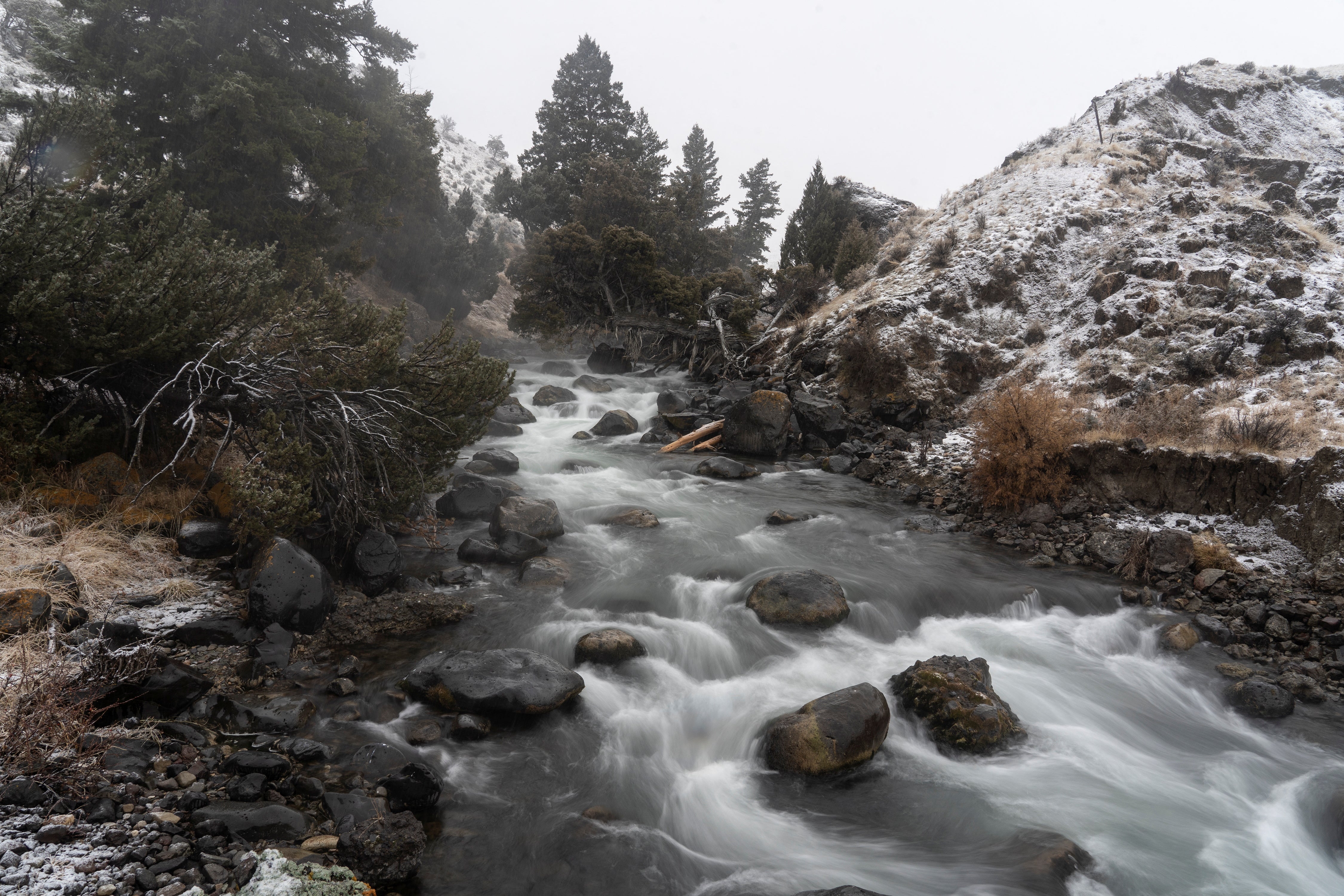Climate change is helping invasive species take over trout habitats in Montana, study says
Scientists predict that cutthroat trout can actually expand their stream occupancy despite climate change - but only in the absence of nonnative species

Your support helps us to tell the story
From reproductive rights to climate change to Big Tech, The Independent is on the ground when the story is developing. Whether it's investigating the financials of Elon Musk's pro-Trump PAC or producing our latest documentary, 'The A Word', which shines a light on the American women fighting for reproductive rights, we know how important it is to parse out the facts from the messaging.
At such a critical moment in US history, we need reporters on the ground. Your donation allows us to keep sending journalists to speak to both sides of the story.
The Independent is trusted by Americans across the entire political spectrum. And unlike many other quality news outlets, we choose not to lock Americans out of our reporting and analysis with paywalls. We believe quality journalism should be available to everyone, paid for by those who can afford it.
Your support makes all the difference.If you grab your fishing pole and head to a river in Montana’s Rocky Mountains, you may easily make a catch.
But thanks to human-caused climate change, that fish is more likely to be a nonnative species.
A study in Science Advances shows that Montana’s changing climate is causing native trout to dwindle - and facilitating the rise of invasive species.
The scientists analysed 30 years’ worth of data from trout surveys in streams and rivers in Montana’s Rocky Mountains. Since trout are sensitive to climate conditions, they are a kind of bellwether for their ecosystem.
Climate change endangers all kinds of trout, and nearly half of their habitat has declined in the West in recent years. But warming waters have a silver lining for some invasive species introduced by fisheries for recreational fishing. The nonnative trout can often better adapt - and outcompete native species.
The researchers found that the amount of stream occupied by native bull trout declined 18 percent between 1993 and 2018, and predict their stream occupancy will decrease another 39 percent in the next six decades.
Westslope cutthroat trout, another native species, declined 6 percent over the study period, and will probably decline another 16 percent by 2080.
The reasons behind the declines were different for each species. The bull trout were possibly threatened most by rising water temperature and decreases in the summer stream flow. Westslope cutthroat trout were likely victims of invasive species - especially rainbow trout - that thrived in the warmer waters.
"Species-specific climate adaptation strategies may be needed for conservation of freshwater biodiversity," the authors write.
The researchers expected to see the declines. But one anomaly surprised them. They project that cutthroat trout can actually expand their stream occupancy despite climate change - but only in the absence of nonnative species.
Montana has already lost some populations of native fish species that thrive in cold water, says study co-author and University of Montana associate professor Andrew Whiteley in a news release.
"This is particularly troubling in a state where cold-water fisheries now contribute nearly $650 million a year to our economy," he says. "But all is not lost for these economically, ecologically and culturally important species as long as appropriate conservation action is taken."
The Washington Post
Join our commenting forum
Join thought-provoking conversations, follow other Independent readers and see their replies
Comments